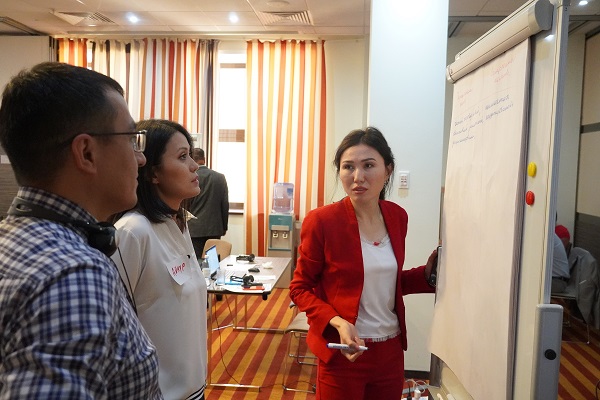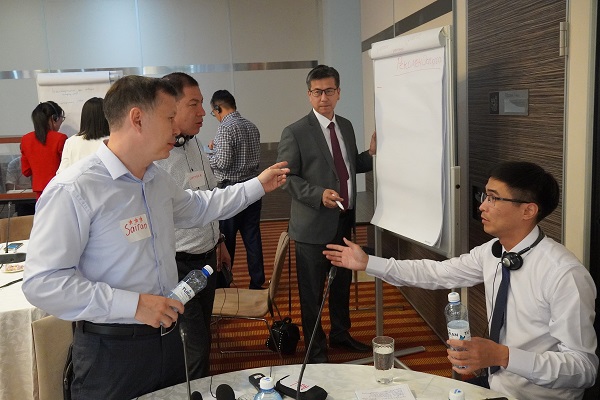UNODC supports expert workshop on human resources policies as part of police modernization in Kazakhstan
Nur-Sultan, 30 June 2022 – UNODC training seminar «Managing open and competitive recruitment and performance management processes for police» concluded today in Nur-Sultan, Kazakhstan.

The training seminar was organized by the UNODC in cooperation with the Ministry of Internal Affairs of Kazakhstan for some 15 police officers representing Human Resources Policy Department of the Ministry and national police training institutions.
The participants discussed the role of human resources, personnel selection, training and assessment practices in the context of the broader agenda to modernize the police service in Kazakhstan.
In her welcoming speech Madina Sarieva, Officer-in-Charge, UNODC Programme Office in Kazakhstan, noted: “UNODC is pleased to see that the modernization of policing in Kazakhstan has placed a particular emphasis on optimizing human resources policy. The professional field of human resources encapsulates and drives the core functions of organizational culture, of professional workforce development, and ethical practice.”

The training seminar was led by the international expert, Dr. Angela Workman-Stark, who shared her experience on organizational changes applied in the Royal Canadian Mounted Police. Dr Workman-Stark also shared useful tools on reducing bias in the recruitment process, understanding the requirements of proactive recruiting, exploring core competencies, and key selection processes.
She also gave several insights about processes of socialization in police, organizational culture, and strategies for retention of recruits during early career stages and ensuring that policing is an attractive career option.

Shyngys Alekeshev, Deputy Head of Human Resources Policy Department of the Ministry of Internal Affairs of Kazakhstan said that “Personnel policy issues, strengthening of selection procedures and further training of police officers are of great importance for establishing of modern policing in Kazakhstan.”
During the workshop particular attention was paid to strengthening the core competencies and related behaviors necessary for modern police service such as flexibility, problem solving, communication, and building diversity and inclusion within the police workforce.

The event concluded with a roundtable discussion devoted to the topic of the application of e-personnel systems in police. During this session participants learned about different benefits and opportunities those systems could give for personnel recruitment and training, as part of a broader strategy for developing and maintaining a modern police service in Kazakhstan.
Project Manager, Wendy O’Brien, said that “the three-day event provided officials from the Ministry of the Interior with the opportunity to engage directly with international experts to discuss the most effective means of building on the initiatives already introduced as part of the modernization agenda in Kazakhstan”.

The activity is part of UNODC's project on Support to Police Reform in Kazakhstan carried out with financial support from the Bureau of International Narcotics and Law Enforcement Affairs (INL) of the U.S. Department of State.